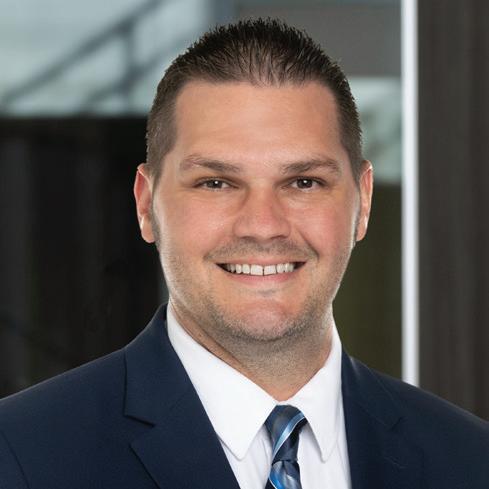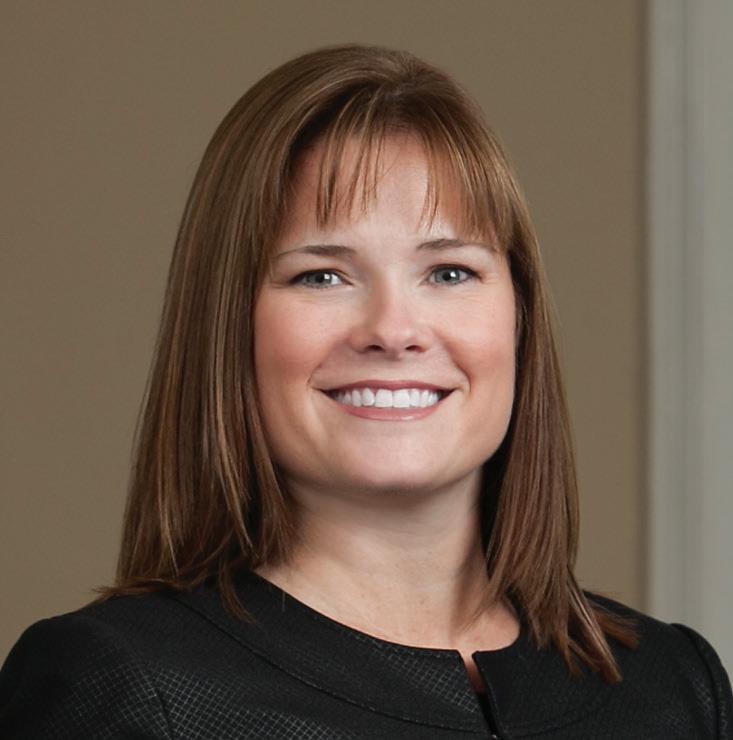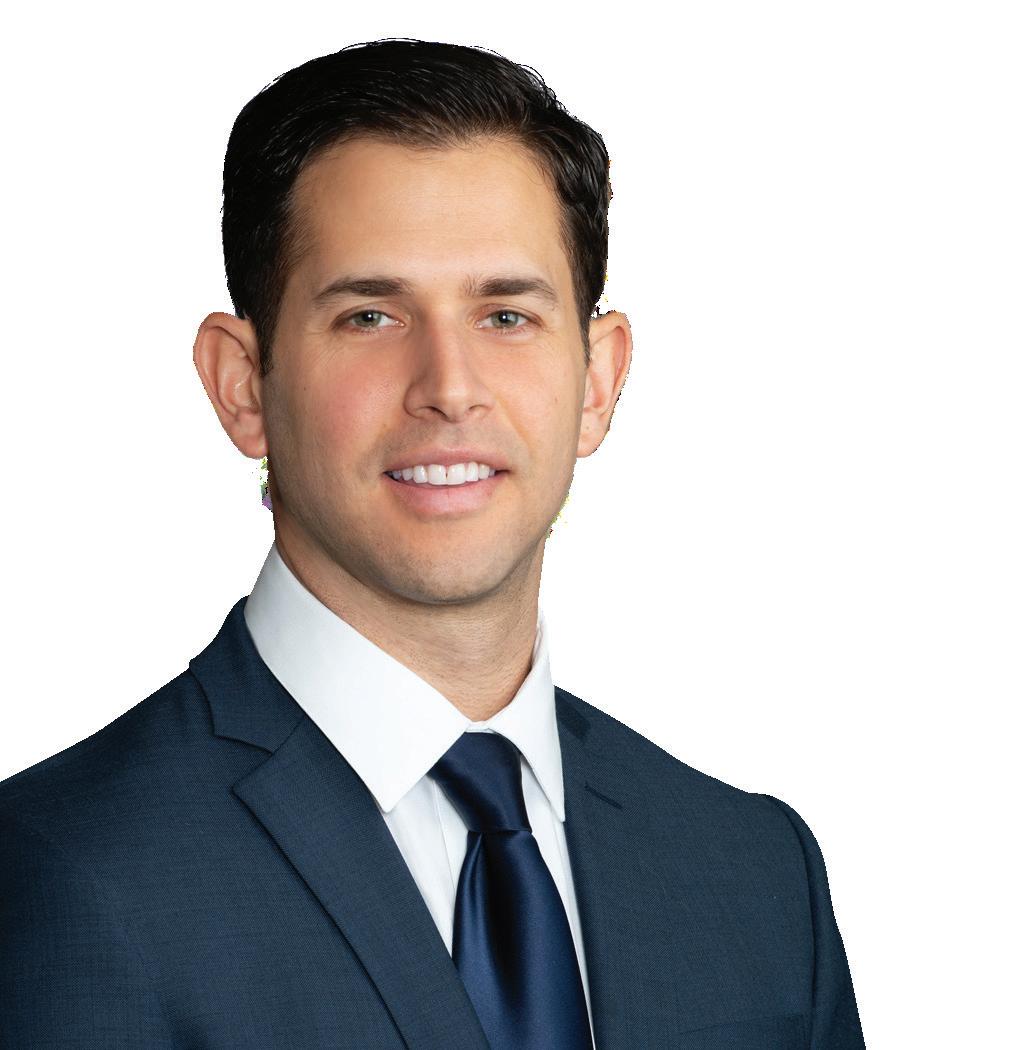

First Party Property Appellate Team
ADMISSIONS
Florida • Georgia • United States Court of Appeal, Eleventh Circuit
SELECTED OPINIONS
w Expert Inspections, LLC d/b/a ITest d/b/a Moldexpert.com a/a/o Pat Beckford v. United Property & Casualty Insurance Company, 333 So.3d 200 (Fla. 4th DCA 2022) (holding that an insurer cannot be required to follow the terms of an AOB contract where the insurer is not a party to that contract).
w The Kidwell Group, LLC d/b/a Air Quality Assessors of Florida a/a/o Maria Amadio v. Olympus Insurance Company, Case No. 5D21-2955 (Fla. 5th DCA July 22, 2022) (interpreting section 627.7152, F.S., as applying to AOB contracts executed after the enactment of the statute, finding the policy inception date irrelevant to the analysis).
Kimberly
w Saunders v. Florida Peninsula Insurance Company, 314 So.3d 592 (Fla. 3d DCA 2020) (interpreting the “faulty workmanship” policy exclusion to include the workmanship process as well as the finished product in affirming the insurer’s denial of a property damage claim).



w The Kidwell Group, LLC d/b/a Air Quality Assessors of Florida a/a/o Benjamin Kivovitz, Case No. 4D21-2843 (Fla. 4th DCA June 15, 2022) (enforcing the new section 627.7152, F.S., requirement of including a line-item estimate with an AOB contract at the time of execution)
AOB
CONTENTS
Daniel
ADMISSIONS
SELECTED OPINIONS
District of
District Court,
District of
w Progressive American Insurance Company v. Glassmetics, LLC, No. 2D21-488, 2022 WL 1592154 (Fla. 2d DCA 2022) (“we reverse the trial court’s order and its conclusions (1) that the appraisal provision was against the public policy underlying section 627.428; (2) that the appraisal provision failed to provide sufficient procedures and methodologies; (3) that Progressive waived its appraisal right; (4) that the appraisal provision was unenforceable because Progressive failed to prove that the insured knowingly, voluntarily, and intelligently waived his rights of access to courts, to a jury trial, and to due process; and (5) that the appraisal provision contains an ambiguity.”).
w All Auto Glass v. Progressive American Ins. Co., Case No. 2018-SC-3126, 2019-33-AP (Fla. Seminole Cnty. Appellate Division.) (“reversing trial court, holding ruling of district court of appeal in jurisdiction other than where trial court is located is binding upon trial court absent conflict with another district court of appeal. )
w Progressive Am. Ins. Co. v Broward Ins. Recovery Ctr., LLC, 322 So. 3d 103 (Fla. 4th DCA 2021) (“reversing trial court, holding prohibitive cost doctrine inapplicable to appraisal”).
PROCEDURAL CHALLENGES
Louis Reinstein
ADMISSIONS
Florida • District of Columbia • United States District Court, Southern District of Florida • United States District Court, Middle District of Florida • United States District Court, Northern District of Florida • United States Court of Appeals, Eleventh Circuit Supreme Court of the United States
SELECTED OPINIONS
w Taffe v. Wengert, 775 F. App’x 459 (11th Cir. 2019) (reversing the denial of summary judgment in the district court for the sheriff and finding the sheriff was not negligent in the hiring, supervision, or retention of deputy sheriff)
w Taffe v. Wengert, 140 S. Ct. 1106, 206 L. Ed. 2d 179 (2020) (Petition for writ of certiorari to the United States Court of Appeals for the Eleventh Circuit denied).
w Williams v. Tony, 319 So. 3d 653 (Fla. 4th DCA 2021) (holding the plaintiff inmate was not an intended third-party beneficiary of the contract between county sheriff and inmate medical services provider, and, thus, could not pursue a negligence claim against provider based on the contract).
w People’s Tr. Ins. Co. v. Progressive Express Ins. Co., 336 So. 3d 1207 (Fla. 3d DCA 2021) (holding the commercial automobile liability policy excluded coverage for property damage caused by improper operation of mobile crane mounted on a truck).
w Watkins v. Pinnock, 802 F. App’x 450, 454 (11th Cir. 2020) (holding that the plaintiff’s proposed amendments could not cure the deficiencies in the fifth amended complaint as the factual allegations did not support deliberate indifference by the nursing staff).
BAD FAITH DISCOVERY LIMITATIONS
Allstate
subject to the statutory requirements. The trial court dismissed the action, and Kidwell appealed.
The Second District Court of Appeals made it clear that the legislation expressly excluded the types of assignments it did not want subject to the legislation. Mold assessments were not one of them. The Court was hard pressed to hold that the services were not subject to the statute when the assignment expressly states a purpose to “determine repairability” and where Kidwell sought payment for “reasonable and necessary assessment services” relating to the damage.
AOB Deficiencies
KK TAKEAWAY:
A trial court does not need to look beyond the complaint to identify that the services were contemplated within the requirements of section 627.7152, Florida Statutes.

Kidwell Grp., LLC v. Am. Integrity Ins. Co. of Fla
KK TAKEAWAY:
Trial Court and Appellate claim handled by Kelley Kronenberg’s very own Matthew Strauss and Kimberly Fernandes.
KK TAKEAWAY:
District Court holds “if it looks like a duck, and quacks like a duck, then it is a duck” regarding the assignee’s argument that its assignment was not for services to protect, repair, restore, or replace property or to mitigate against further damage.
BACKGROUND:
Kidwell filed a breach of contract action against the Insurer, claiming non-payment for services. Kidwell attached the assignment to its complaint, which included the following disclaimer: “this non-emergency indoor environmental assessment in no way is meant to protect, repair, restore, or replace damaged property or to mitigate against further damage.
The Insurer moved to dismiss the complaint for failure to comply with section 627.7152(2) (a), Florida Statutes. Kidwell argued that its assignment was not an assignment agreement as proscribed by section 627.7152, thus not

Misrepresentations Defense
Kimberly Fernandes Partner
Tallahassee, Atlanta
Mariana Gracia v. Security First Ins. Co.
KK TAKEAWAY:
Intent to misrepresent must be established to assert post-loss misrepresentation as forfeiture of coverage.
KK TAKEAWAY:
Fraudulent intent and state of mind are generally not matters for summary judgment.
BACKGROUND:
Insured brought a breach of contract action against Insurer for insufficient payment of benefits. Insurer had issued coverage, but less than Insured’s demanded amount. During litigation, the Insured testified that her 2015 pre-purchase inspection report revealed that “everything was good” and “the roof was in good condition.” Insurer obtained the report, which stated that the roof had roof and interior ceiling damage in 2015. Additionally, there were photographs depicting the damage.
Matthew Strauss Partner

Lauderdale
Insurer sought summary judgment on several issues but focused on the misrepresentation. The policy provided:
3. Concealment or Fraud a. The entire policy will be void if, whether before or after a loss, any “insured” has:
(1) Intentionally concealed or misrepresented any material fact or circumstance;
(2) Engaged in fraudulent conduct; or
(3) Made false material statements; relating to this insurance.
inspection report. The Fifth District Court of Appeals overturned the judgment holding that a misrepresentation must be intentional and Insurer failed to establish an intent to misrepresent.

Insured executed an affidavit asserting that “to the best of her knowledge, the damages sought in the instant claim arose from 2017, not from 2015.” Insured further claimed that the evidence from the report was insufficient to establish that she intended to make a misrepresentation.
The trial court agreed with Insurer finding that the Insured’s explanation was not credible in light of the evidence in the pre-purchase
While the express language of the policy did not include a requirement to establish intent, the Fifth District Court of Appeals expressly held that intent to misrepresent is read into a policy forfeiture provision regarding post-loss misrepresentations. While the Insurer argued that intent was clear under these facts, the District Court held that it is rare for fraudulent intent or state of mind issues are factual disputes to be addressed by a jury.
Procedural Challenges
authority to reconsider nonfinal orders but noted that it is within the trial court’s discretion to deny a motion for reconsideration that raises an issue that could have been raised but was not.
Chris Thompson, P.A. a/a/o Elmude Cadau v. Geico Indemnity Company
KK TAKEAWAY:
A party cannot utilize a motion for reconsideration to raise a new legal challenge available to it before the hearing on the motion
BACKGROUND:
Insurer sought fees pursuant to exhausted proposal for settlement after acquiring a judgment in Insurer’s favor. Insured did not file a response to the motion for entitlement but argued that the proposal was not made in good faith at the hearing. The trial court granted the motion for entitlement.

After that, Insured filed a motion for reconsideration, arguing that the proposal did not comply with Rule 1.442. Insured admitted that this issue was not raised at the hearing but that the trial court had the inherent authority to reconsider a order on a nonfinal order.
Insurer argued that this new argument was available to the Insured before the hearing, thus Insured waived this argument by not raising it in the original hearing. The trial court agreed that the challenge had been waived.
The Fourth District Court of Appeals acknowledged the trial court’s inherent
Bad Faith Discovery Limitations
KK TAKEAWAY:
If work product materials are sought in bad faith action for failure to settle, they are discoverable with limitations. One limitation is the underlying litigation records are still subject to attorney-client privilege.

Allstate Ins. Co. v. Jesse Lee Ray, as Personal Representative of the Estate of Deborah L. Veilleux, deceased
KK TAKEAWAY:
While work product materials are discoverable in a first-party bad faith claim, courts must analyze whether it pertains to the processing or litigation of the underlying claim
KK TAKEAWAY:
A trial court must conduct an in-camera review of records to determine whether records were made in the process or litigation of the underlying claim. If so, discoverable. However, a court must then analyze for attorney-client privilege.

BACKGROUND:
Insured’s estate brought a first-party bad faith claim against the carrier for failure to settle after an excess verdict. During discovery, Insured’s estate sought discovery of documents, including communications between the adjuster, in-house counsel, and outside counsel. Allstate objected under work product, and attorney-client privilege as the records sought were between adjusters, in-house, and outside counsel specific to the bad faith claim.
privilege in bad faith did not do away with the attorney-client privilege.
Additionally, the District Court explained that there might be instances in which counsel assists with the underlying claim investigation. In those instances, the trial court must conduct an in-camera inspection to determine if the Insurer’s attorney was providing legal advice or whether they were assisting with the claim investigation. The latter would be discoverable.
The trial court overruled the objections finding the communications must be related to the underlying litigation claim, thus discoverable. In overturning the ruling, the District Court held that the elimination of work product
Authored by: Daniel Montgomery Partner, JacksonvilleA Firm Built on Relationships

FORT LAUDERDALE
NAPLES
CHICAGO
DAYTONA
JACKSONVILLE
NEW ORLEANS
ORLANDO
TALLAHASSEE
NEW YORK CITY
BY APPOINTMENT ONLY
NEW JERSEY
ATLANTA

